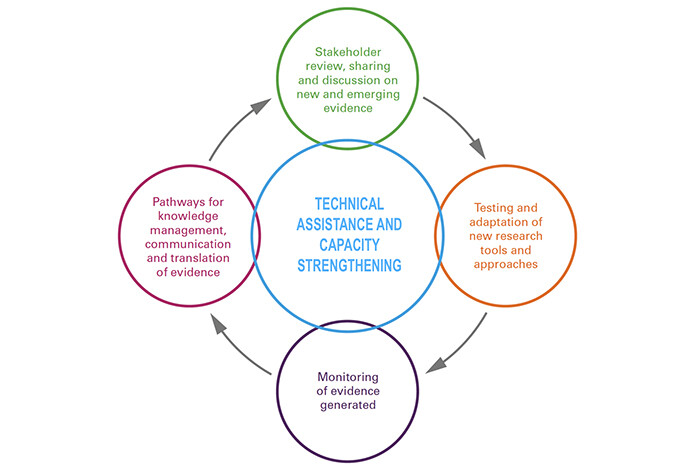
Female genital mutilation (FGM), rooted in power imbalances and discriminatory gender and social norms, perpetuates inequities by taking away women’s and girls’ voice, choice, and agency.
Despite intense efforts to address FGM, knowledge of what works remains elusive. This is due in part to a lack of high-quality evidence coupled with a disconnect between research and programming.
The Population Council, together with UNFPA, UNICEF, and WHO, published a research agenda that prioritizes the evidence and approaches we need to eliminate FGM in the next decade. The agenda is based on a global review of evidence on the effectiveness of FGM interventions.
The research agenda refines research questions within key themes and identifies bottlenecks in the use of evidence for programming. To ensure success, it also outlines interrelated approaches to bring together experts and networks to improve research quality and programs.

Interrelated approaches to enable interaction across key actors and uptake of evidence to accelerate the elimination of FGM.
As work gets underway, the Population Council is leading the FGM Data Hub to enable accountability, monitoring of research, and use of evidence. The hub will supply robust data, timely analyses, practical monitoring and evaluation tools, and technical assistance to inform the design, implementation, adaptation, and scaling of effective strategies to end FGM.
